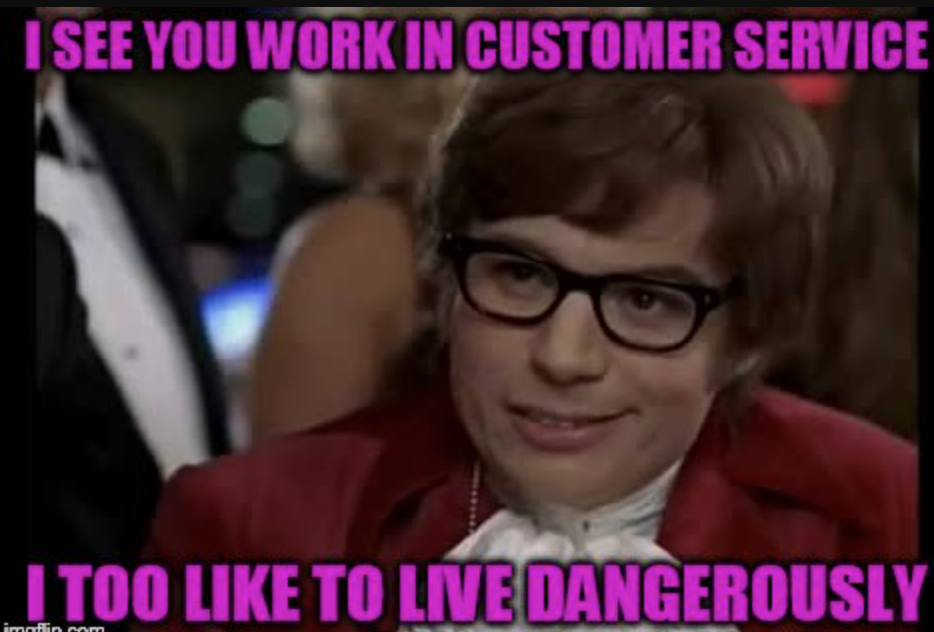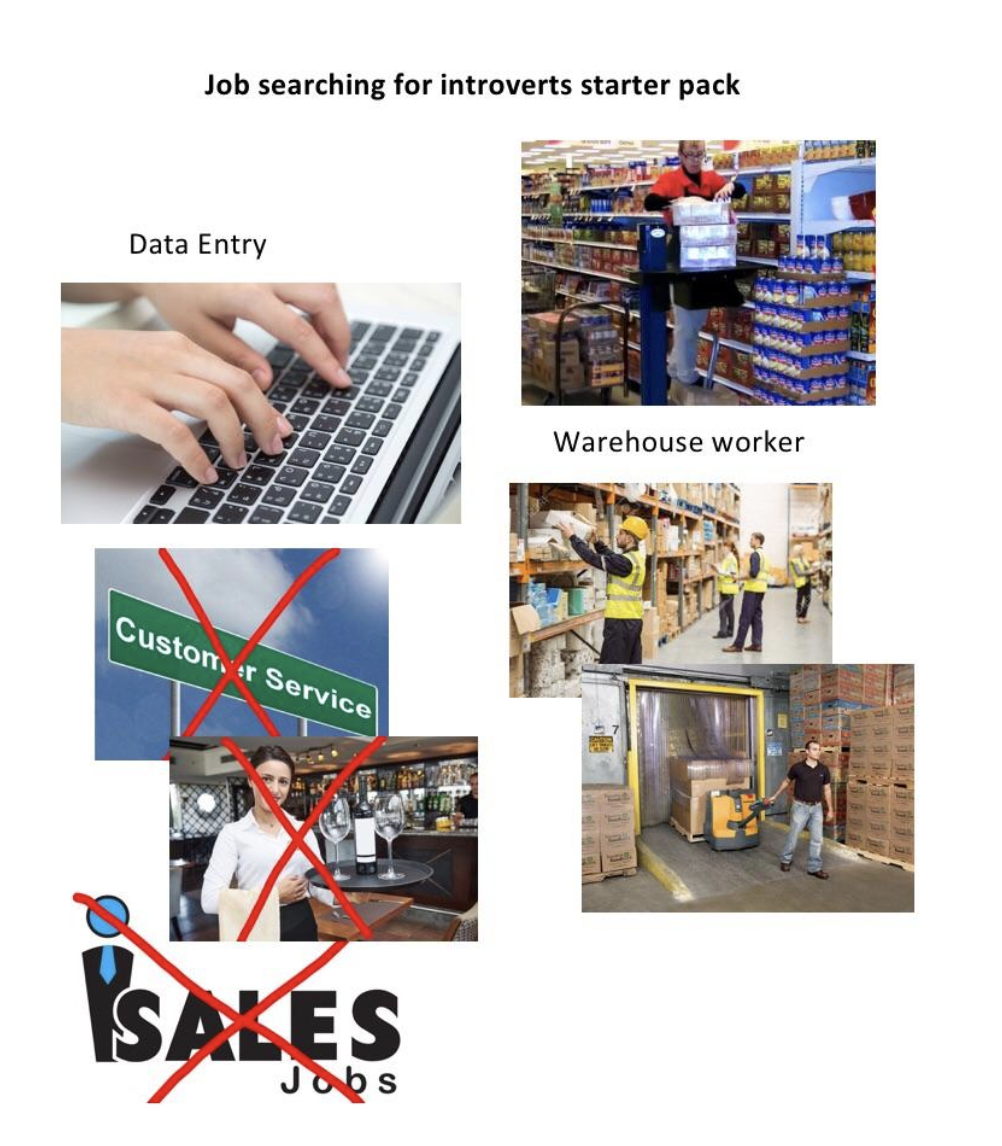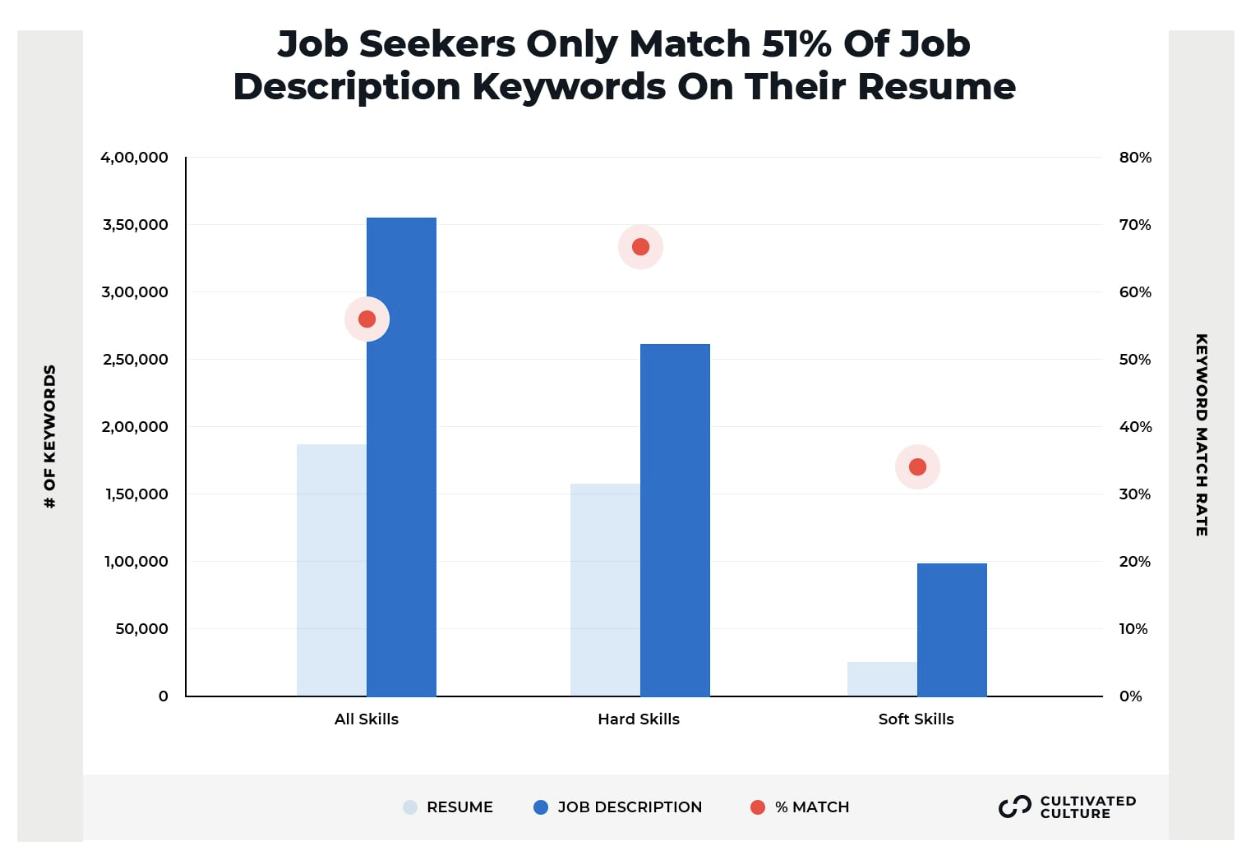Top 9 Work-From-Home Jobs You Can Land With No Experience
Start working from home with no experience. These remote jobs offer real earning opportunities and flexible work-from-home options.
July 21, 2025
July 21, 2025

Looking for remote jobs with no experience required? You’re not alone — thousands of beginners search for work-from-home jobs every day, hoping to ditch the commute and start earning from the comfort of their own space. The good news is that there are real opportunities out there that require no prior experience — just reliability, basic tech skills, and the willingness to learn on the go. Whether you’re pivoting careers or simply need flexible income, the roles on this list can help you break in without a packed resume.

What counts as "no experience"?
First of all — do you really have zero experience? It might feel that way if you’ve never had a traditional job, but think again. Maybe you’ve helped a friend set up their Etsy shop, had odd freelance jobs online, speak more than one language, or handled things like scheduling, emailing, or budgeting for your household. These kinds of everyday skills are more transferable than they seem.
Most remote jobs that don’t require experience aren’t looking for fancy qualifications. Also, employers care more about soft skills — things like being reliable, comfortable with basic tech, and able to manage your time.
When evaluating candidates without formal experience I prioritize adaptability and learning capacity over industry knowledge. I'm looking for people who can navigate ambiguity and demonstrate intellectual curiosity. In logistics and fulfillment, conditions change rapidly - someone who can learn quickly and adjust is invaluable.
The soft skills that matter most in remote roles are self-discipline, communication, and initiative. Can you manage your workday without supervision? Can you articulate challenges clearly? Will you proactively seek solutions? These traits matter more than technical skills, which can be taught.
{{Joe Spisak}}
If you can show you’re dependable and know your way around a computer, sometimes that’s often more important than formal work history. Multiple hiring managers and small business owners confirmed this when talking to me — curiosity or interest in the actual work beat formal experience. Another winning soft skill? Communication, especially the proactive kind: I’m talking status updates, flagging problems early, clear writing.
When hiring beginners, I look for strong communication and curiosity. If someone clearly explains why they want the role and shows they took time to understand our agency, they stand out right away.
Traits like reliability, attention to detail, and willingness to learn matter most in entry-level remote roles. One great hire came from a candidate who researched Vortex Ranker deeply and even suggested small tweaks to our website before starting. That initiative helped turn them into a long-term team member.
{{Ramzy Humsi}}
9 legit work-from-home jobs that don’t require experience
So, without further ado, here are our top 9 jobs that don’t require experience, that you can also do from home. Want to switch it up and actually leave the house? Check out our guide on top jobs where you do nothing.
Just a quick note: for salary ranges, this article uses US-based job search websites. Figures may vary by location, especially internationally, so take them as a general guide, not a global standard.
1. Customer Support Representative
Salary range: $10.34-$38.61 per hour, average salary: $19.98 (source: indeed.com)
If you’ve ever helped someone troubleshoot a tech issue, replied calmly to a confusing message, or explained something step-by-step, you’ve got the bones of what customer support requires. These roles focus on helping people — often via live chat or email — with empathy, patience, and clarity.
Customer support jobs don’t usually ask for formal qualifications, but they do require strong communication skills, comfort with tools like helpdesk platforms or CRMs, and the ability to stay calm when someone’s annoyed or confused. It’s a great first step into remote work, especially if you enjoy problem-solving and making people feel heard.
Pros:
- Steady demand. Nearly every online business needs support staff, so there’s a wide range of industries hiring.
- Clear growth path. With experience, you can move into roles like customer success, support lead, or operations.
Cons:
- Repetitive work. You’ll often deal with the same questions or processes day-to-day.
- Emotional labor. Handling upset customers can be tiring, especially without strong team support.

While technically different from customer support, customer success roles often require the same foundation: empathy, clarity, and proactive communication. That’s why this hiring insight still applies.
One of our top customer success managers came from teaching with zero logistics experience. What stood out was her exceptional ability to simplify complex concepts and her genuine empathy. She quickly grasped our platform's nuances and now expertly guides eCommerce businesses through 3PL selection.
{{Joe Spisak}}
2. Virtual assistant
Salary range: $16.82—$44.19 per hour, average salary: $27.26 (source: indeed.com)
Virtual assistant jobs are some of the most flexible and varied remote roles out there. You might be answering emails one hour, scheduling a CEO’s Zoom calls the next, and drafting social media captions by the end of the day.
You don’t need formal experience — just strong organisational skills, decent digital literacy, and the ability to juggle multiple tasks without losing your mind.
The best virtual assistants think in workflows, not just to-dos. If you’re someone who has a system for everything, this could be a great fit.
I hired a virtual assistant two years ago who had never worked in marketing but spent 10 minutes in her interview explaining how she'd organize our client communication workflows using color-coded systems and automated follow-ups. She's now managing operations for our highest-volume white-label partners because she naturally thinks in systems rather than just tasks.
{{Karen Cleaver}}
Pros:
- Flexible schedule. Most VA roles let you work from anywhere and often allow async hours.
- Diverse tasks. You’ll get exposure to calendar management, inbox cleanup, research, and more — great for building broad admin skills.
Cons:
- Low starting pay. Especially on freelance platforms, entry-level VAs can earn less than minimum wage.
- Unclear expectations. Some clients treat VAs as catch-all helpers, which can lead to chaotic task loads.
3. Data entry
Salary range: $15.99—$20.10 per hour, average salary: $17.93 (source: indeed.com)
Data entry jobs involve inputting information into spreadsheets, databases, or content management systems. They don’t usually require previous experience or fancy software skills — just accuracy, consistency, and decent typing speed.

You should be wary, however: this field has a high number of scam listings. If a job promises huge pay for little work, asks you to buy software upfront, or communicates exclusively via Telegram or WhatsApp, it’s probably not legit. Stick to trusted platforms (for example, FlexJobs, MTurk, and Clickworker – I’ll mention more websites later on in the article)and never pay to apply.
Pros:
- Solo focus. Data entry roles are a good choice for introverts and people who prefer independent, heads-down work, with minimal calls.
- Flexible hours. Many data entry jobs are task-based rather than time-based, цршср makes it easier to work around your schedule.
Cons:
- Low pay. Data entry jobs are often undervalued and don’t offer much upward mobility.
- Possible scams. This category is full of fake listings. So, always research companies as diligently as you can before applying.
4. Online moderator/community support
Salary range: $21.52—$48.71 per hour, average salary: $32.38 (source: indeed.com)
Customer support, community building, and rule enforcement are all a part of online moderator roles. You’ll help maintain a safe, welcoming environment — whether that’s on a gaming forum, Discord server, or a brand’s social media group.
Expect a mix of deleting spam, answering user questions, calming tempers, and sometimes dealing with trolls. It’s not glamorous, but it’s a real behind-the-scenes job that keeps online spaces functioning.
Pros:
- Mission-driven impact. You get to shape the tone of a community, support users, and help build healthier online spaces — especially rewarding if you care about digital wellbeing or fandom culture.
- Relevant community experience. If you’re already part of a fandom, game, online group, or another niche community on the internet, that experience can help you land the role.
Cons:
- Emotional strain. Moderating heated discussions or banning users can take a toll.
- Odd hours. Many jobs involve evenings, weekends, or rotating shifts to match community activity.
5. Social media assistant
Salary range: $14.63—$28.79 per hour, average salary: $20.53 (source: indeed.com)
This role is more about execution than strategy — think scheduling posts, replying to comments and DMs, and keeping the content calendar on track. It’s a good entry point if you’re organised, quick to learn platform quirks, and not afraid of repetitive tasks. Just don’t expect to “do content strategy” on day one.
Pros:
- Hands-on experience. You’ll get to work directly with social platforms, learn what performs well, and build familiarity with tools like Buffer, Later, or Meta Business Suite.
- Creative exposure. Even if you’re not leading campaigns, you’re close to the action, and over time, that proximity can help you move into content or strategy roles.
Cons:
- Limited ownership. You’ll likely follow instructions from a strategist or marketing lead, with little say in the overall direction.
- Performance pressure. Social media moves fast, and some teams expect immediate responsiveness, even outside traditional work hours.
6. Transcription
Salary range: $14.70—$40.78 per hour, average salary: $24.48 (source: indeed.com)
Transcription isn’t glamorous, but it’s straightforward and often flexible. You’ll listen to audio recordings — podcasts, interviews, meetings — and convert them into clean, readable text. It’s detail-heavy and can be tiring on the ears, but if you’re a fast typer with good focus, it pays fairly for the effort.
Pros:
- Flexible hours. Most transcription gigs let you work without fixed hours, which is ideal if you need control over your schedule.
- Skill sharpening. You’ll develop serious listening accuracy, attention to nuance, and even pick up industry terms (legal, medical, etc.) if you niche down.
Cons:
- Tedious repetition. Long files with poor audio quality can make even simple jobs feel so, so boring.
- Low rates for beginners. Platforms often underpay new transcribers, so building up to better-paying clients might take some time.
7. Website tester
Salary range: $19.23—$69.95 per hour, average salary: $44.00 (source: ziprecruiter.com, for “freelance software tester” — includes higher-end quality assurance work)
Being a website tester involves giving feedback on websites, apps, and user experiences.
To get started, you don’t need a background in design or anything tech-related, just clear communication skills and being willing to speak your thoughts out loud while looking at a website. You give feedback to businesses which then use it to improve things like usability, confusing layouts, and to catch bugs they themselves missed.
Some platforms will ask for written answers, but many pay for spoken walkthroughs. If you’re articulate and detail-oriented, it’s a decent way to earn extra income — though not consistent enough to replace a full-time job. No reliable salary data available for web testing microtasks. While some platforms claim $10—$30 per test, actual earnings vary widely and depend on test availability.
Pros:
- Straightforward setup. All you need is a mic, a screen recorder, and a quiet space.
- Skill-adjacent exposure. As you test more and more websites, you’ll grow accustomed to UX patterns and design choices. This can lead to better-paying jobs in related fields later on down the road.
Cons:
- Inconsistent availability. Tests come in waves and often get claimed fast, so you can’t count on steady work.
- Low ceiling. Even with multiple platforms, pay caps out quickly. Don’t think of it as a career path, but rather as a way to earn some pocket money.
8. Proofreader
Salary range: $13.52—$39.91 per hour, average salary: $23.22 (source: indeed.com)
Proofreading is all about catching typos, grammar issues, and awkward formatting before anything gets published. You’ll work with marketing teams, publishers, or businesses to polish everything from blog posts to ebooks and product pages. Unlike editing, this role is purely about surface-level fixes — not rewording or rewriting. It’s great for people with an eye for detail and a low tolerance for rogue apostrophes.

With proofreading jobs, not every client wants the same thing. Sometimes all they want is another pair of eyes. Other times, you’ll be required to stick to a particular style guide, like APA or Chicago. You don’t need a degree in English to do this job. But you should definitely know the difference between “its” and “it’s,” and “to” and “too.”
Pros:
- Low overhead. All you need is a laptop, a decent eye, and maybe a tool like Grammarly.
- Quiet environment. No meetings, no calls — just you and the text.
Cons:
- Unpredictable workflow. Some months are full, others totally dead — depends on the client base.
- High competition. Everyone thinks they’re good at spotting typos, so platforms can get crowded.
9. Billing assistant
Salary range: $12.26—$29.57 per hour, average salary: $20.00 (source: ziprecruiter.com)
Billing assistants handle routine invoicing, data entry, and payment tracking tasks. You might work with spreadsheets, billing software, or internal tools to generate invoices, check payment statuses, or resolve minor discrepancies. This kind of role doesn’t usually require a finance degree — just good organisation, accuracy, and a bit of Excel.
Some roles are part-time or freelance, and many are fully remote. You might work for healthcare providers, agencies, or small businesses that need help managing their books.
Pros:
- Organized routine. Clear tasks, repeatable processes, and minimal surprises.
- Low-stress environment. Often solo, asynchronous work without intense deadlines.
Cons:
- Entry-level pay. The ceiling for pay is lower than other admin roles.
- Repetitive tasks. Great if you like structure. Not so great if you crave variety.
Where to find these jobs
You’ve got the skills — now where do you actually get hired? The good news is that entry-level remote jobs are everywhere, but you do need to know where to look (and what to avoid).
Job boards that don’t filter you out
Some job sites are basically a wall of “must be US-based,” “must have 5 years of experience,” “must have a degree in rocket science.” Not helpful. We have a list of platforms that can help you land your next work-from-home gig below.
- Upwork. Upwork is a popular freelance marketplace. It’s pretty competitive, but it’s a good place to start looking if you’re just getting your first few clients or projects.
- Indeed. Indeed is a well-known US-based job site. Set your location to “Remote” and search keywords like “entry-level,” “assistant,” or “no experience.”
- Remote.co. Remote.co is a curated job board focused on fully remote roles. Unlike Upwork, Remote.co doesn’t use a bidding system — you apply like a regular job, without having to compete on price or write custom proposals for every gig. It’s especially helpful for roles like admin, writing, customer support, and marketing.
- We Work Remotely. One of the oldest and most trusted remote job boards. It leans more toward tech and creative roles, but you’ll also find admin, support, and writing jobs. No bidding required — just straightforward listings you can apply to directly.
Need even more places to look? Check out our guide on alternatives to these platforms.
How to avoid scams
Scams are common in remote job listings, but a few quick rules can help you steer clear. Never pay to apply — real jobs don’t charge you upfront for training or onboarding. If something feels off, trust your instincts and walk away. A quick Google search with the company name and the word “scam” can reveal red flags. When in doubt, stick to well-known platforms that screen their listings.
How to stand out without experience
If you’re applying to remote or freelance jobs without much formal experience, your goal is simple: show that you’re thoughtful, proactive, and genuinely interested, not just firing off the same CV to 50 listings. A tailored, well-researched job application and resume always go a long way.
A red flag is a generic application with no mention of our services or the actual role. It usually signals they are applying everywhere without care. For applicants, my advice is to personalize your message, research the company, and show genuine interest. Even without experience, a thoughtful approach can open the door.
{{Ramzy Humsi}}
That might sound basic, but you’d be surprised how many people skip this step entirely. According to research, only 51% of candidates include keywords relevant to the job they’re applying for in their CV!

The same goes for measurable metrics — people just don’t tend to include them. Data shows that only 26% of resumes included five or more, while 36% didn’t include a single one.
Another thing that sounds pretty obvious, but really bears repeating — proofread your job application, CV and cover letter (if you’re submitting one). You’d be surprised how many people skip this step entirely. In fact, almost 60% of hiring managers immediately reject a resume due to poor grammar or typos — any error can kill your chances, even before they read your qualifications.
The red flag that kills applications instantly is when someone says they're "detail-oriented" but their email has typos or they miss obvious instructions in the job posting. In remote work, your written communication IS your first impression, and if you can't proofread a three-paragraph cover letter, you definitely can't manage client deliverables.
{{Karen Cleaver}}
So what does that mean for your resume? Even if you don’t have direct experience, you can stand out by highlighting transferable skills, fluency with basic tools (like Zoom or Google Docs), and your ability to work independently. And above all, show that you’ve done your homework. When you get to the interview stage, keep that personalized knowledge close — it’s just as, if not more, important there.
For applicants, show you've done research on our industry. Understanding basic 3PL terminology or mentioning a specific fulfillment challenge shows initiative. Also, provide concrete examples of transferable skills — how your experience in customer service, project management, or problem-solving applies to our world … Remember, in remote work, your communication style is your first impression. Clear, thoughtful responses that demonstrate genuine interest will always stand out more than a perfect resume.
{{Joe Spisak}}
If you’re just starting out, one of the best ways to show what you can do is… well, to show it. Even a simple Google Doc with mock tasks or example projects can help employers visualize how you think and work. If the role involves writing, create a fake blog post. If it’s customer service, map out how you’d respond to a support request. A little initiative goes a long way. And while you’re applying, consider brushing up on a few basics — there are plenty of free courses online that teach tools like Google Workspace, Zoom, or Notion. You don’t need to become an expert overnight, but showing effort helps prove you’re serious.
What you can realistically earn
There’s no single number that applies to all remote jobs — what you earn depends on the role, company, hours, and sometimes even your time zone. Some people start on the lower end, while others land surprisingly well-paid roles from the get-go. It’s not a get-rich-quick scheme — but it can be a stable first step, a chance to build experience, and a way to earn money from home while keeping your options open.
If you find yourself wanting more — more freedom, more money, more control — remote work can be a launchpad. Since you’re already working from home, it’s easier than ever to start a side hustle. Maybe it’s freelance writing or design. Maybe it’s something niche you didn’t even know you were good at.
If it takes off, you could turn it into a full-time freelance career (we’ve got pros and cons, plus a list of top-paying gigs to check out). Or maybe you go in a totally different direction — one that involves palm trees, cafés with Wi-Fi, and a carry-on suitcase. Remote work doesn’t have to mean staying put — check out our guide on best locations for digital nomads.
Final thoughts
Remote work is a real, accessible path for people with no experience to start earning, learning, and figuring out what they want next. Whether it leads to a full-time career, a freelance leap, or a life lived out of a backpack, it’s a step worth taking. The internet is full of scams, and vague advice, but real opportunities do exist. And now you’ve got a clearer idea of where (and how) to find them.
FAQ
We are here to ease your working routine
Whether you're freelancing or a full-time contractor, we simplify the working process, putting you in control.
Try it free




Rippling is an HR, IT, and Finance all-in-one software solution. In 2026, there are several alternatives with various pricing points and features. This article takes a deep dive into Rippling’s 15 top competitors, comparing features, pricing, and more.

Gig driving is one of the quickest ways to find job opportunities and make extra money. Check our complete guide for independent contractor drivers in 2026, with tips and best practices to help you earn more.

Colombia Digital Nomad Visa: learn how to apply, eligibility requirements, and best spots for remote work in one of the most biodiverse countries.


.JPG)